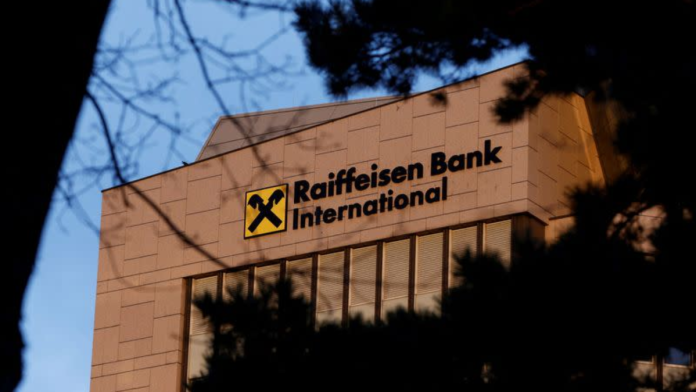The European Union is reportedly exploring a dramatic step that could see some frozen Russian assets released. This move is aimed at helping Raiffeisen Bank International, a major Austrian bank, settle a massive fine ordered by a Russian court. The plan has drawn attention and raised questions across Europe, as it involves billions of euros and frozen investments linked to Russian oligarch Oleg Deripaska.
Frozen Assets Could Solve a €2 Billion Fine
Raiffeisen Bank International owes about €2 billion to a Russian court following a lawsuit brought by Rasperia, a company formerly owned by Oleg Deripaska. Normally, paying such a fine would be straightforward. However, a large portion of the assets that could cover the payment are frozen under EU sanctions. These sanctions were introduced in 2022 following Russia’s invasion of Ukraine, targeting Deripaska and his business connections due to links with Russia’s military-industrial sector.
The EU is now considering temporarily lifting sanctions on shares in the Austrian construction company Strabag, which were previously linked to Deripaska. These shares have remained frozen for years, preventing Raiffeisen from using them to satisfy the Russian court’s ruling. If approved, the shares would be transferred to Raiffeisen, allowing the bank to pay the €2 billion fine without violating EU sanctions policies.
The assets in question are valued at around €2 billion, or roughly $2.3 billion. The transfer would provide Raiffeisen with a way to resolve the dispute while technically maintaining EU sanctions in other areas. This step, though temporary, would represent a significant adjustment to existing EU policy and demonstrates the complex intersection of finance, law, and international sanctions.
Austria’s Raiffeisen unable to complete sale of its Russian operations
Concerns Among European Countries
The proposal has sparked debate among EU member states. Some officials are concerned that unfreezing these assets could be seen as legitimizing Russian court decisions, which are increasingly being used to retaliate against Western sanctions. Allowing such a move could create a precedent where other Russian business figures attempt to use legal systems to reclaim frozen assets in Europe.
Several EU countries are reportedly hesitant to support the plan, fearing it could weaken the effectiveness of EU sanctions. The proposal was initially suggested by Austria, the home country of Raiffeisen Bank International, but objections are expected from other member states. EU ambassadors are scheduled to discuss the issue in an upcoming meeting. No final decision has been made, and neither the European Commission nor Raiffeisen Bank has commented publicly.
The debate highlights the delicate balance the EU must strike between supporting its banks and maintaining sanctions pressure on Russia. European officials must weigh the financial needs of Raiffeisen against the potential political and economic risks of lifting sanctions on assets linked to Deripaska.
Raiffeisen Struggles with Business in Russia
Raiffeisen Bank International is one of the largest Western lenders operating in Russia, serving as a key financial bridge between Russian and Western markets. Despite its important role, the bank has faced significant challenges managing its Russian business.
Recently, Raiffeisen attempted to sell a stake in its Russian operations. However, Russian authorities blocked the sale, concerned that a transfer to a domestic buyer could trigger additional Western sanctions. This has left the bank in a difficult position, needing to pay a substantial fine while being unable to freely move assets in or out of Russia.
If the EU approves the unfreezing of Strabag shares, Raiffeisen could use the assets to meet the court-ordered €2 billion payment. This would allow the bank to comply with the Russian ruling without breaching EU sanctions and could resolve one of the most complex financial disputes in Europe today.
The situation underscores the ongoing challenges of sanctions enforcement, international finance, and legal disputes involving major banks and Russian companies. EU discussions continue, with officials cautious about both the financial and political consequences of their decisions.


